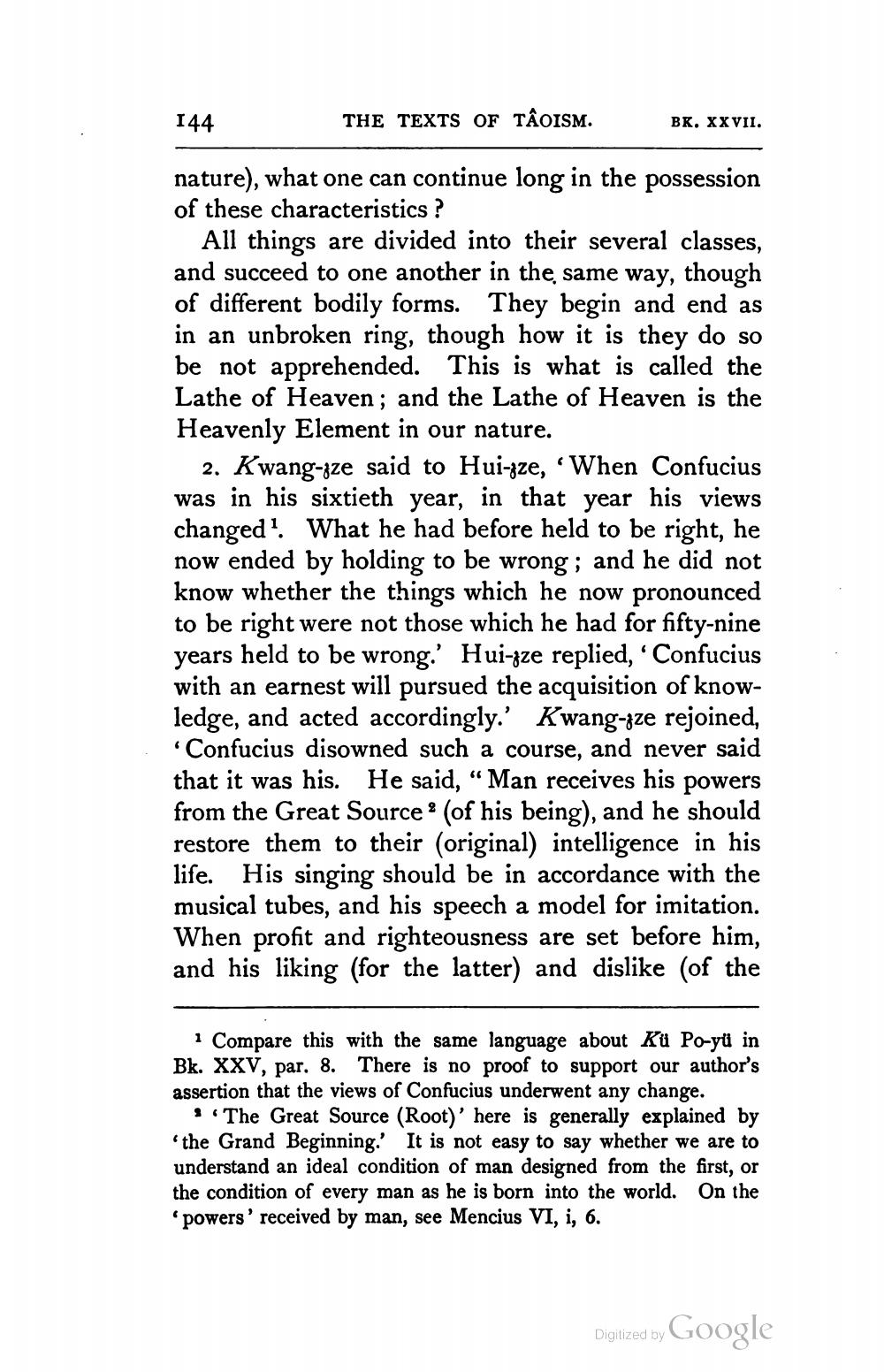________________
144
THE TEXTS OF TÂOISM.
BK. XXVII.
nature), what one can continue long in the possession of these characteristics ?
All things are divided into their several classes, and succeed to one another in the same way, though of different bodily forms. They begin and end as in an unbroken ring, though how it is they do so be not apprehended. This is what is called the Lathe of Heaven; and the Lathe of Heaven is the Heavenly Element in our nature.
2. Kwang-zze said to Hui-zze, ‘When Confucius was in his sixtieth year, in that year his views changed'. What he had before held to be right, he now ended by holding to be wrong; and he did not know whether the things which he now pronounced to be right were not those which he had for fifty-nine years held to be wrong. Hui-zze replied, 'Confucius with an earnest will pursued the acquisition of knowledge, and acted accordingly. Kwang-zze rejoined,
Confucius disowned such a course, and never said that it was his. He said, "Man receives his powers from the Great Source ? (of his being), and he should restore them to their (original) intelligence in his life. His singing should be in accordance with the musical tubes, and his speech a model for imitation. When profit and righteousness are set before him, and his liking (for the latter) and dislike (of the
1 Compare this with the same language about Kü Po-yü in Bk. XXV, par. 8. There is no proof to support our author's assertion that the views of Confucius underwent any change.
! •The Great Source (Root)' here is generally explained by 'the Grand Beginning. It is not easy to say whether we are to understand an ideal condition of man designed from the first, or the condition of every man as he is born into the world. On the powers' received by man, see Mencius VI, i, 6.
Digitized by Google




